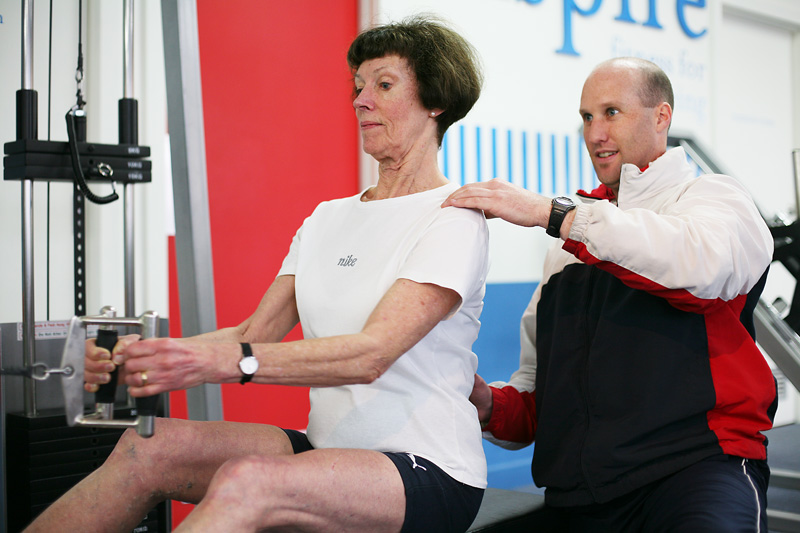Written by: Joshua Martin (Exercise Scientist)
Multiple sclerosis (MS) is a condition where the body’s immune system damages the central nervous system. Damage to the central nervous system disrupts the signals that go from the brain to the body allowing it to move and function.

4 Types of Multiple Sclerosis
- Relapsing Remitting Multiple Sclerosis
It is the most common form of MS, where individuals have flares that come and go, with each one slightly worsening their overall condition
2. Secondary progressive multiple sclerosis (SPMS)
- Bouts of autoimmune attacks, months/years apart
- Residual permanent damage accumulates decreasing a person’s function.
- Starts as Relapsing Remitting Multiple Sclerosis
- Over time attacks become constant → progression of disabilities
3. Primary progressive multiple sclerosis (PPMS)
- Progression of disabilities over lifetime
4. Progressive-relapsing multiple sclerosis (PRMS)
- One constant attack, steady decline with attacks
MS can affect people differently both physically and cognitively and can differ in severity. The most common symptoms include:
- Muscle weakness
- Abnormal walking mechanics
- Balance problems
- Spasticity
- Fatigue (often caused by heat)
- Cognitive impairments
- Trouble regulating body temperature
Due to the above activities of daily living (ADL) become more difficult and this can also lead to mental health difficulties.
Associated conditions:
- Diabetes
- Cardiovascular disease
- Hypertension (high blood pressure)
- Heart arrythmia (heart rate not in a normal rhythm)
Treatments for MS
Exercise Physiology, Physiotherapy and medications are common treatments to limit the effect MS has on an individual however there is no cure.
Benefit of Exercise for MS:
Exercise such as resistance training/weight training and aerobic training/cardiovascular exercise has been shown to improve the general wellbeing of MS individuals and improve ADL.
Resistance exercise increases the strength of the effected muscles increasing their function, movements and stability and therefore decrease MS symptoms such as weakness and lack of stability. Cardiovascular exercise can assist in reducing fatigue by improving oxygen utilisation allowing more oxygen to reach working muscles decreasing fatigue. Exercise can also improve cognitive function as it increases the strength of neural pathways which is how the brain signals the body to make movements.
Most importantly with exercise treatment for those with MS is that it focuses on their goals and needs. For example, if someone wants to be able to improve their walking then exercise improving strength, endurance and stability in the legs is key rather than upper body strength.
Flexibility: flexibility training can also be helpful in those with MS especially those with spasticity. Spasticity is muscle tightness that occurs due prolonged muscle contraction. This can be uncomfortable and reduce function of the affected area. Stretching of this effected muscle can help relieve discomfort and prevent further painful contractions.
According to Exercise Sport Science Australia it recommended those with MS should complete:
- 2-3 sessions of both aerobic and resistance training per week.
- Exercise should be performed at a moderate to high intensity and should last between 10 to 30 minutes.
- Stretching in areas of spasticity should be completed for 5-10 minutes a day
Considerations when exercising:
- Exercise intensity should be modified each session to accommodate symptoms that may occur that day.
- Supervision when exercising is important especially at the early stages of an exercise program.
- Having cold drinks available and air-conditioning in use is important to help with temperature regulation and reducing heat affected fatigue.
If you would like to know more about how exercise can help you if you have MS, book a consultation with us at Inspire Exercise Physiology in Balwyn North
